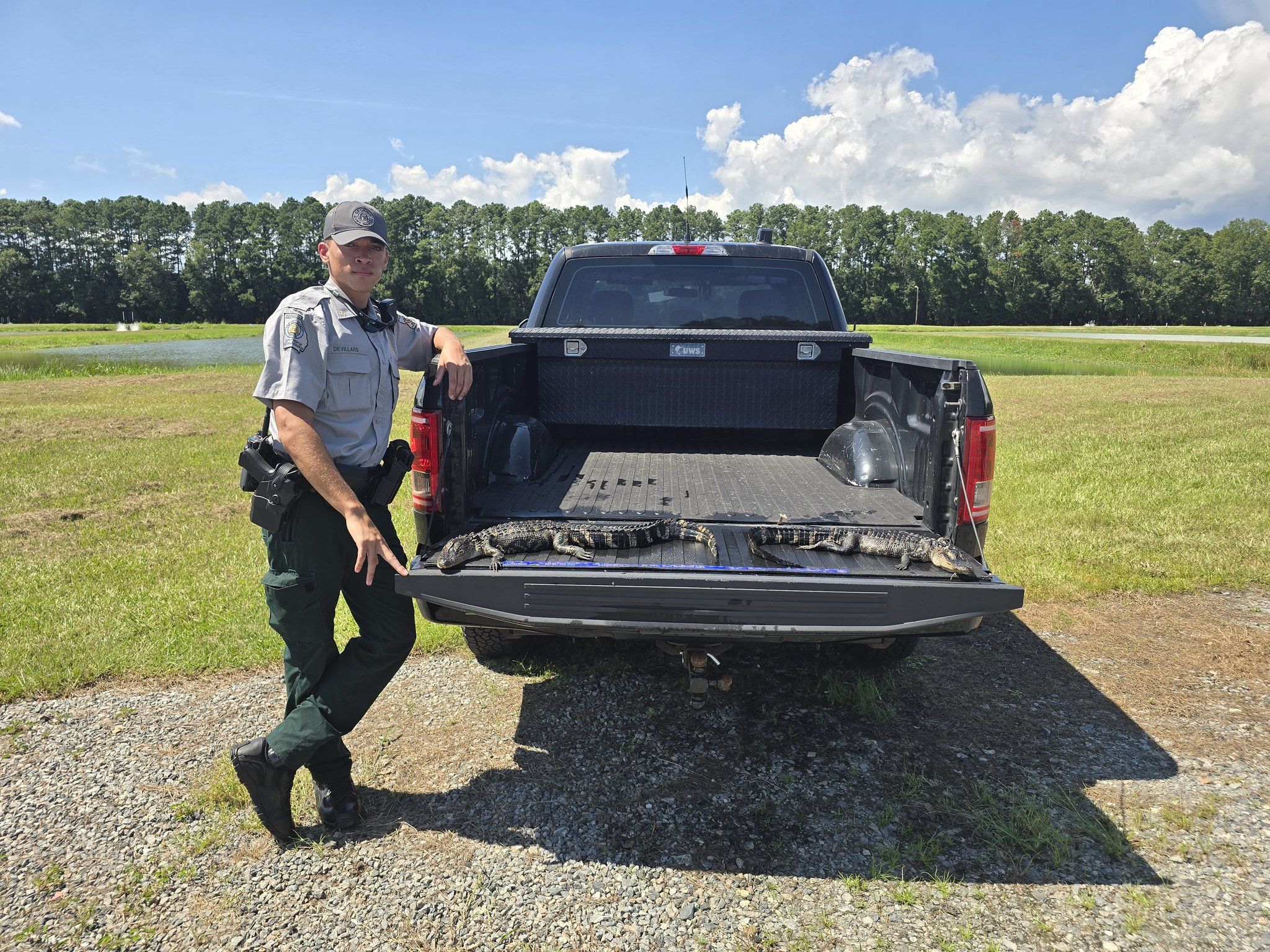During a search warrant executed on August 29 in connection with a theft investigation, Richmond Hill police detectives uncovered two small, illegally killed alligators in Bryan County. The discovery led to charges against an individual for possessing the animals, which were taken in violation of state hunting regulations.
The Details: While looking for items related to the theft, officers found the two alligators, both of which had been killed in what appeared to be a cruel and illegal manner. One of the reptiles had a hook lodged in its mouth, while the other had been shot with a crossbow, a bolt still visible in its head.
Not only were the alligators under the size limit allowed by Georgia’s wildlife laws, but the individual in possession of them also lacked the required tag to legally harvest alligators.
Upon the discovery, Richmond Hill detectives called in the Department of Natural Resources. Game Wardens Corporal Douglas Chambers and Xavier DeVillars met with the suspect, ultimately citing the individual for illegal possession of the alligators.
Why It Matters: This case illustrates the ongoing challenge of wildlife protection in Georgia, where alligator hunting is tightly regulated to ensure the conservation of the species. Violations such as this not only harm the animal population but also undermine the state’s efforts to maintain balanced ecosystems.
What’s Next: The individual cited will likely face fines or other penalties for violating state hunting laws. Depending on the severity of the violations, wildlife offenses can result in hefty fines, loss of hunting privileges, or even jail time in some cases. The alligator population remains a focal point for wildlife officials, who continue to monitor hunting activities to ensure they remain within legal bounds.
Thom Chandler
The Georgia Sun is a news and infotainment website devoted to all things Georgia.


